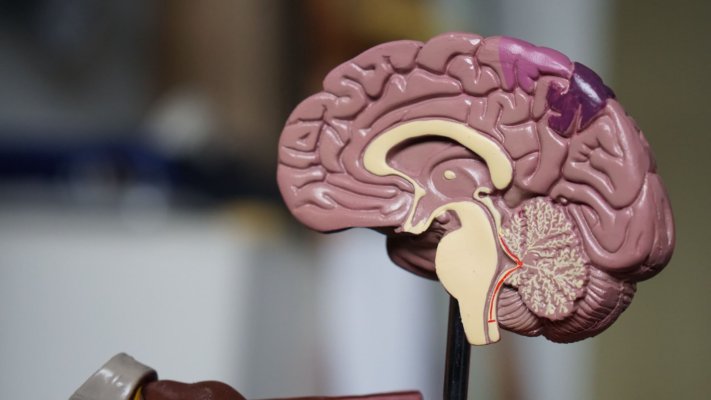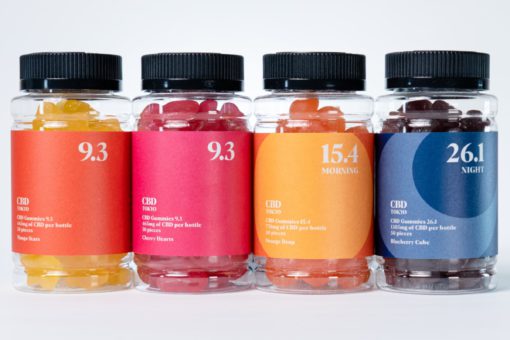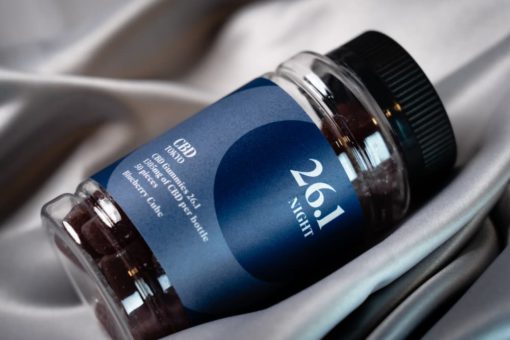CBD in Japan, CBD Medical Science, Pain Control
CBD for MS – Relieving Multiple Sclerosis Symptoms
Using CBD to treat MS may not come as that much of a surprise. Research has revealed that CBD seems to interact deeply with the neurons in our brains in a positive way. As MS can wreak havoc on the nervous system, the idea of using CBD to treat MS is not farfetched. Today we will be exploring the potential of using CBD for MS in our HealthyTOKYO article on CBD, taking a look into why MS is such a complicated condition to live with and what CBD-related research has to say regarding MS.
Table of contents
What is CBD and its Connection with Multiple Sclerosis?
CBD or Cannabidiol holds a promising position in managing many health challenges, among which is multiple sclerosis. The complexity of this health situation, fondly called MS, has made many sclerosis patients turn to alternative methods, one of which is the use of CBD. Various studies have indicated that CBD for multiple sclerosis works efficiently in managing sclerosis spasticity, thanks to the remedial properties of CBD. Due to this, continuous research and development on cannabinoid products for multiple sclerosis have gained substantial support globally.
Several multiple sclerosis patients across the world have discovered the potential of medical cannabis as an effective treatment alternative. In particular, CBD products like oils and extracts have shown positive results. Deficient levels of endogenous cannabinoids in MS patients is an issue that CBD for MS theoretically addresses due to its potential ability to refill this shortage. Consequently, using medical marijuana for sclerosis spasticity has become a popular alternative for those averse to conventional medication.
The cannabinoid product in Japan also follows this global trend, with increasing acceptance and more research being performed in this area. CBD products, primarily oils and CBD extracts have become top picks amongst those suffering from multiple sclerosis. However, regardless of the current momentum of cannabis, it’s important to continue seeking professional medical advice before using CBD or any cannabinoid product for multiple sclerosis.
What is CBD?
Cannabidiol, frequently abbreviated as CBD, is a chemical compound that is sourced from the Cannabis Sativa L. plant. It is one of many compounds classified as a cannabinoid. Cannabinoids are shown to interact with receptors in the brain and throughout the body and are reported to produce a variety of positive effects such as relief from anxiety and depression, alleviating pain, and aiding sleep. It can be extracted from marijuana or hemp, and when produced correctly, can be completely free of THC.
Our top 5 reasons why CBD is beneficial for potential MS symptom relief:
- Alleviates Pain: CBD has been extensively studied for its effect on pain and inflammation, conditions commonly associated with Multiple Sclerosis. Its anti-inflammatory properties may assist in easing the discomfort and improve the quality of life for patients.
- Reduces Muscle Spasticity: Multiple Sclerosis can often lead to muscle spasticity where the muscles become stiffened or tight, making movement difficult. CBD may help alleviate such symptoms by interacting with the receptors involved in regulating muscle movements.
- Improves Sleep: Many people with Multiple Sclerosis struggle with sleep issues. CBD can potentially contribute to better sleep by addressing symptoms like pain, spasms, and anxiety that often disrupt restful sleep.
- Reduces Fatigue: Fatigue is a common symptom in people with Multiple Sclerosis. CBD has the potential to boost energy levels and reduce fatigue, thereby enhancing overall physical function and productivity.
- Helps with Depression and Anxiety: Due to the chronic nature of the disease, many people with Multiple Sclerosis report experiencing symptoms of depression and anxiety. Through its calming effects on the central nervous system, CBD can potentially help reduce anxiety and improve mood.
What is MS?
MS, or “Multiple Sclerosis”, is a condition that causes the immune system to attack the central nervous system. This attack damages the fibers of the central nervous system, such as the brain, spinal cord, and optic nerves, and causes scarring to these fibers. This in turn disrupts communication between the brain and other parts of the body. Those who suffer from MS feel its effect in a variety of ways and the severity of the symptoms depends on the individual.
MS will usually manifest as issues with general body functions such as motor control, and problems with vision and balance, and can also cause patients to grow tired easily or suffer from mood swings. Some people with MS are bound to wheelchairs, making even simple, everyday activities a challenge, while others may only have basic vision or fatigue issues. Regardless of the severity, patients with MS have to deal with its symptoms throughout their life, though it is not considered a terminal disease.
Compared to other diseases, Multiple Sclerosis is fairly uncommon, affecting about 2 million people worldwide. A high concentration of those affected are women with Northern European ancestry aged 20 to 55. Unfortunately, the root cause of MS is still somewhat unclear, but genetics and family history may help indicate its initial onset.

What research has been conducted on CBD for MS?
Before going into the potential of using CBD for MS, we must re-acknowledge that the disease is so varied from patient to patient, even prescribed pharmaceuticals only have a reported 25% efficacy at reducing MS symptoms. Thus, it is no wonder that patients who suffer from MS may want to look into alternative forms of relief. The US National Library of Medicine itself has noted that CBD holds the potential to relieve issues of spasticity (a state in which muscles are continuously contracted). Both clinical and preclinical research suggest that cannabinoids like CBD can help with spasticity, inflammation, chronic pain, and depression (see our article on CBD for Depression for more information).
As with many of the other reported applications of CBD, there is a large amount of anecdotal evidence that suggests it may help relieve symptoms of MS. There are an increasing number of MS patients who have turned to medical marijuana, which contains cannabinoids such as CBD, and claim its efficacy in improving mobility and pain relief.
In addition, there is also evidence that suggests cannabinoids can slow down the progression of diseases and may have neuroprotective properties. However, it must be noted that these findings have only been supported by preclinical trials thus far. To bolster this claim of CBD’s neuroprotective properties, one piece of very suggestive evidence lies in the US government’s patent 6,630,507 from the year 2003 titled, “Cannabinoids as antioxidants and neuroprotectants”. The patent claims cannabinoids such as CBD have the proven ability to reduce neurological damage caused by neurodegenerative diseases such as MS.
Exploring the Impact of Medical Marijuana on MS Symptoms
As we continue to explore the impact of medical marijuana on MS symptoms, it has become clearly evident that the potential of cannabinoids, specifically those found in medicinal cannabis, are vast. For years, synthetic cannabinoids and other cannabinoid products have been widely recognized in Japanese traditional medicine, as they have shown remarkable efficacy in managing multiple sclerosis spasticity and several other symptoms associated with this disease.
Several studies have suggested that cannabis, loaded with cannabinoids, might offer significant relief to sclerosis patients from the crippling effects of MS. Such findings come as no surprise, given that cannabinoids have been extensively researched for their potential as a therapeutic agent in several diseases, including multiple sclerosis, or MS.
Patients dealing with MS often turn to cannabinoid products, including medical marijuana and synthetic cannabinoids, for relief. Due to the nature of the disease, individuals living with MS often experience severe spasticity and pain, which can be efficiently managed using medicinal cannabis.
While further research is undoubtedly necessary, the current evidence indicating the positive effects of cannabinoids on MS is persuasive. As MS continues to pose significant challenges, both in Japan and globally, the use of cannabinoids from medicinal cannabis as a supportive treatment option offers hope and solidarity to thousands of sclerosis patients worldwide.

The Popularity of CBD Gummies among MS Patients
In the health community, there’s an increasing yearning for effective, natural solutions. CBD, particularly in the form of CBD gummies, has come to the forefront as a commendable alternative for MS patients. These gummies are not only easy to ingest but also bring relief to many Multiple Sclerosis patients. In our evolving health landscape, they are gaining traction as a viable option for mitigating the complications of MS and enhancing the quality of life.
Multiple Sclerosis is a chronic disease that affects the nervous system. An unfortunate number of patients have to grapple with this health condition daily. CBD gummies offer a glimmer of hope, contributing to an improved sense of well-being and overall health.
Many patients have attested to the positive impact CBD gummies have had on their health and daily living. It offers them a non-invasive, patient-friendly way to manage their symptoms. We believe it is essential to shed light on these alternative solutions within our community, given the potential benefits they bring to the table.
Studies around CBD for MS are noteworthy. They have helped to validate the efficacy of CBD oil and, by extension, CBD gummies in Multiple Sclerosis treatment. We continue to explore the impact of these and other forms of medical marijuana on MS symptoms, always with patients’ health at the forefront of our minds.
The popularity of CBD gummies among MS patients is thus justified. These gummies offer a fundamentally different yet effective approach to living with this complex health condition. They are, without a doubt, a vital addition to the broader health discourse.
| Product | Potential Benefits / Effectiveness for Multiple Sclerosis |
|---|---|
| CBD Oil | – Reduces Inflammation: CBD oil reduces inflammation in the nervous system which could help manage symptoms of Multiple Sclerosis. – Decreases Pain: CBD oil has analgesic properties which can help alleviate chronic pain associated with Multiple Sclerosis. – Improves Sleep: Because it has a calming effect, CBD oil can contribute to better sleep which is important for managing Multiple Sclerosis. – Manages Spasticity: CBD oil can help to control muscle spasticity that often comes with Multiple Sclerosis. – Improves Quality of Life: By managing various symptoms, CBD oil can improve the quality of life for those with Multiple Sclerosis. |
| CBD Gummies | – Easy to Consume: CBD Gummies are a convenient and tasty way to consume CBD making it easier for those with difficulty swallowing or people who dislike the taste of oil. – Longer Lasting Effects: The effects of CBD Gummies are usually longer lasting as they are slowly released in the system. – Provides Mental Relief: CBD Gummies can help to reduce anxiety and depression, which are common symptoms in Multiple Sclerosis. – Reduces Fatigue: CBD Gummies can contribute to reducing fatigue and improving energy levels in individuals with Multiple Sclerosis. – Aids Digestive System: CBD Gummies can help to improve appetite and aid with digestion, which can be beneficial for those with Multiple Sclerosis. |
Cannabis as an Alternative Relief Option for MS Patients
The potential of cannabis as an alternative relief option for MS patients is increasingly being recognized worldwide. Cannabis contains several beneficial cannabinoids, which can offer support to MS patients who struggle with painful symptoms. In fact, the application of cannabinoids in this context has been particularly recommended due to their potential therapeutic effect on sclerosis patients.
Cannabis, especially medical cannabis, offers an impressive array of benefits to MS patients. Its high cannabinoid content helps alleviate painful symptoms associated with MS while offering robust support. CBD for multiple sclerosis is edging towards the frontier of alternative treatments, highlighting the breakthroughs in the use of cannabinoids in medicine.
The use of synthetic cannabinoids is also emerging as a viable treatment option. A synthesized cannabinoid product has similar benefits to its natural counterpart, and it can be tailored for specific needs. Particularly worthy of mention is the escalating interest in medical marijuana. Similar to medical cannabis, medicinal cannabis holds immense promise in managing MS symptoms, making it a significant avenue for relief.
Anecdotal evidence and preliminary clinical trials suggest that cannabinoids offer much-needed support to sclerosis patients. For instance, cannabinoids can reduce spasticity and neuropathic pain in MS patients. Therefore, it seems that cannabis and its derivatives, notably CBD for multiple sclerosis, could offer promising alternatives in the search for effective relief options.

How to Use CBD Oil to Potentially relief Symptoms of Multiple Sclerosis
Over time, research has provided some support to the idea that CBD oil, used regularly, may offer valuable help for individuals with Multiple Sclerosis. The symptoms of this disease, including sclerosis spasticity, can be debilitating, but CBD oil can offer some much-needed support in mitigating these symptoms’ severity.
Sclerosis patients have turned to this natural solution due to its potential benefits and far fewer side effects in comparison to traditional treatments. However, it is essential for all MS patients to seek health advice before integrating CBD oil into their regimen. As for the dosage, it should always be administered under the guidance of healthcare professionals as each case of MS is unique, and individuals react differently.
Used correctly, CBD oil has the potential to provide significant support to the health of sclerosis patients. And given the current popularity of CBD products, such as CBD gummies among Multiple Sclerosis patients, it indicates a positive trend in society’s acceptance. At the same time, ongoing research on cannabis as a potential alternative relief option can bring hope to many dealing with this complex disease. Remember, your health comes first, and seeking expert advice before embarking on this journey can provide an effective support system during the journey.
Understanding the Side Effects of CBD when Treating MS
The medical potential of CBD for MS and its related symptoms like sclerosis spasticity is becoming recognizable globally. However, understanding the side effects of these progressive health solutions is essential. CBD, one of the major cannabinoids, could elicit side effects, the majority of which are generally considered mild. These may include fatigue, dizziness, changes in appetite, and gastrointestinal problems. It’s worth noting that the response to CBD might vary among sclerosis patients, thereby leading to differing side effects.
Furthermore, when using CBD products for health impacts, potential adverse effects can occur if they are taken alongside other medications. This is because CBD may interact with certain enzymes in the liver, possibly altering the way some drugs function in the body. Studies continue to engage with such complexities regarding health implications.
Undoubtedly, cannabinoids have established their foothold within therapeutic areas, particularly for health challenges like MS. However, with the explosion of the CBD market, consistent health regulatory scrutiny of these CBD products remains essential. Cannabinoids should be well-analyzed to determine the health and safety profiles of sclerosis patients who may rely on them. Therefore, continuous research, aimed at understanding the side effects and interactions of CBD with other health-focused drugs, is vital for safe usage.
Sclerosis spasticity can indeed be a daunting symptom for MS patients to face, and though CBD products may help to alleviate this, understanding their side effects becomes invaluable for effective relief.
Conclusion
Without having to look too hard, research on using CBD for MS is readily available and rather convincing. As mentioned above, living with MS can make simple activities like walking a great challenge. This compounded with the low efficacy of traditional methods makes the prospect of CBD as an alternative form of treatment rather exciting.
If you are curious about CBD or health-related matters in general, do not hesitate to contact us through the site chat feature located on the bottom right of the webpage.
Before you go, just remember:
- Multiple Sclerosis varies in severity from patient to patient: some suffer only minor symptoms while others are wheelchair-bound
- While CBD is sourced from the Cannabis sativa L plant, it is possible to remove any traces of THC
- Both clinical and preclinical research have produced evidence to suggest that CBD holds the potential to relieve MS symptoms
- It is essential to navigate the journey of managing MS with a knowledgeable healthcare provider.
- The US government holds a patent on cannabinoids as a neuroprotective agent
Lastly, we would like to round off the article about using CBD for MS with a quote from awarded Neurologist and Rehabilitation Physician Dr. Barnes, who visited us in Tokyo last year to obtain CBD for his wife who has fibromyalgia:
“It is a pleasure to write a note for HealthyTOKYO. I visited their shop to obtain some CBD for my wife who has fibromyalgia and finds it invaluable.
Neurologist and Rehabilitation Physician Dr. Barnes
There is no doubt now about the medicinal properties of CBD. The evidence for efficacy in pain, anxiety, nausea and epilepsy is overwhelming. Indeed, it is for this reason that now over 40 countries have legalised cannabis generally for medical purposes. Many other countries now recognise the properties of CBD alone whilst not yet coming to terms with legalisation of the THC varieties. That, I gather, is the case in Japan.
In the UK, CBD with less than 0.2% THC has been legal for many years although it cannot, strangely, be marketed for its medical properties and has to be sold as a food supplement. Nevertheless, it is very popular, not only for medical use but as a healthy living product. The UK has now decided to make full extract cannabis, with THC, CBD and the other minor cannabinoids and terpenes, legal from November 2018. Although we do not yet know the exact regulations it seems that there will be no restriction on conditions that can be prescribed by specialist doctors. It is likely that the main restriction on use will be the lack of knowledge of doctors. Many support the legalisation but equally many would not prescribe as they do not understand its properties, dosage, etc. We are trying, in the UK, to correct that knowledge gap by setting up a free doctors training programme in November. See taomc.org which will be live before long.
It is exciting that Japan is joining this worldwide movement and HealthyTOKYO is at the forefront of good quality CBD supply. I hope that soon Japan will find the benefits of medical cannabis for so many people with so many medical problems.“
FAQ
A: CBD, or Cannabidiol, is a natural compound found in hemp plants. It offers significant therapeutic potential without the psychoactive effects associated with THC. CBD is thought to have the potential to address certain deficiencies in endogenous cannabinoids in MS patients. Research shows CBD may provide relief from inflammation, pain, anxiety, and even seizures, potentially improving the quality of life for those living with MS.
A: CBD products, such as oils and extracts, have shown positive results in managing symptoms in some MS patients. They can potentially replenish deficient levels of endogenous cannabinoids, addressing the spasticity issue commonly associated with MS. However, it’s important to seek professional medical advice before incorporating CBD or any cannabinoid product into a treatment regimen.
A: In Japan, CBD products are gaining increasing acceptance. More research is being performed on the potential benefits of CBD products for MS symptoms, particularly oils and CBD extracts. Synthetic cannabinoids have been extensively researched for their potential as therapeutic agents in multiple sclerosis.
A: To determine safety, it’s essential to understand potential side effects. While most side effects are generally mild and may include fatigue, dizziness, changes in appetite, and gastrointestinal problems, effects may vary among sclerosis patients. It’s advisable to monitor the patient’s condition closely while they are consuming CBD gummies and to seek guidance from healthcare professionals.
A: Yes, many studies have suggested that medical marijuana, rich in cannabinoids, might provide relief to MS patients from the distressing effects of spasticity. However, individual responses to cannabinoids can differ. Therefore, it’s essential to navigate the journey of managing MS with support from a knowledgeable healthcare provider.








